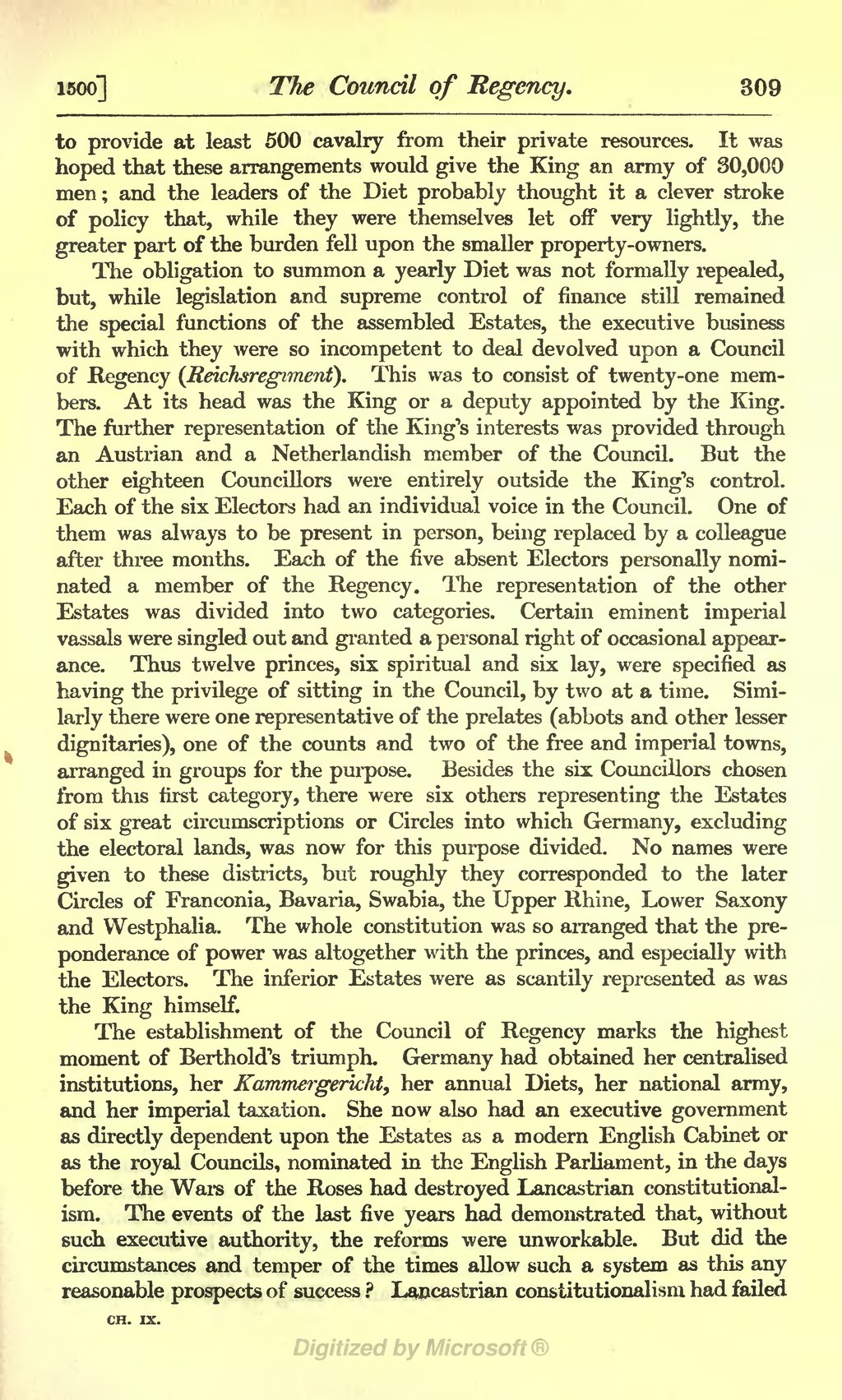to provide at least 500 cavalry from their private resources. It was hoped that these arrangements would give the King an army of 30,000 men; and the leaders of the Diet probably thought it a clever stroke of policy that, while they were themselves let off very lightly, the greater part of the burden fell upon the smaller property-owners.
The obligation to summon a yearly Diet was not formally repealed, but, while legislation and supreme control of finance still remained the special functions of the assembled Estates, the executive business with which they were so incompetent to deal devolved upon a Council of Regency (Reichsregiment). This was to consist of twenty-one members. At its head was the King or a deputy appointed by the King. The further representation of the King's interests was provided through an Austrian and a Netherlandish member of the Council. But the other eighteen Councillors were entirely outside the King's control. Each of the six Electors had an individual voice in the Council. One of them was always to be present in person, being replaced by a colleague after three months. Each of the five absent Electors personally nominated a member of the Regency. The representation of the other Estates was divided into two categories. Certain eminent imperial vassals were singled out and granted a personal right of occasional appearance. Thus twelve princes, six spiritual and six lay, were specified as having the privilege of sitting in the Council, by two at a time. Similarly there were one representative of the prelates (abbots and other lesser dignitaries), one of the Counts and two of the Free and Imperial Towns, arranged in groups for the purpose. Besides the six Councillors chosen from this fh'st category, there were six others representing the Estates of six great circumscriptions or Circles into which Germany, excluding the electoral lands, was now for this purpose divided. No names were given to these districts, but roughly they corresponded to the later Circles of Franconia, Bavaria, Swabia, the Upper Rhine, Lower Saxony and Westphalia. The whole constitution was so arranged that the preponderance of power was altogether with the princes, and especially with the Electors. The inferior Estates were as scantily represented as was the King himself.
The establishment of the Council of Regency marks the highest moment of Berthold's triumph. Germany had obtained her centralised institutions, her Kammergericht, her annual Diets, her national army, and her imperial taxation. She now also had an executive government as directly dependent upon the Estates as a modern English Cabinet or as the royal Councils, nominated in the English Parliament, in the days before the Wars of the Roses had destroyed Lancastrian constitutionalism. The events of the last five years had demonstrated that, without such executive authority, the reforms were unworkable. But did the circumstances and temper of the times allow such a system as this any reasonable prospects of success? Lancastrian constitutionalism had failed
